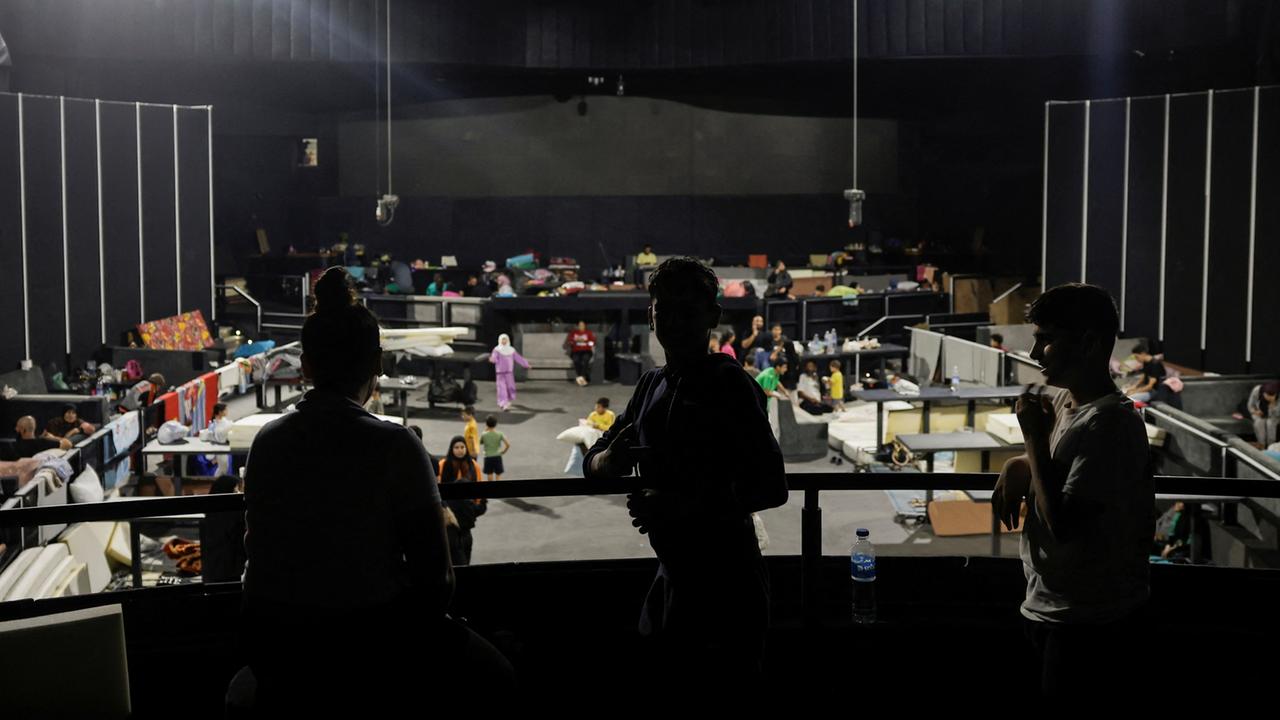Skybar in Beirut was one of the most famous clubs in the Middle East. You had to pay up to $100 for entry here. In view of the war, the operators have decided to now accommodate refugees in the bar.
If only she could turn back time and stop it, to September 21st. September 21st, says Gyal Arani, was the last wild night here in the club. “The Skybar was full of people, everyone was dancing, everyone was in a good mood. It was one of the best nights we've ever had. We didn't know that it would be our last night. We still had so many plans here. We had “We've already made the program for the winter.”
Skybar was the hottest club in the Middle East. The rich and famous of Beirut danced here, and they had no problem paying $100 for admission, even in times of crisis.
The Skybar is located on this building.
So close to war
The war had already come so close. At the end of September, the Israeli secret service exploded thousands of Hezbollah's pagers and radios and killed senior staff and commanders of the Shiite militia with targeted drone strikes.
Then, on September 27, 90 tons of bombs suddenly fell on Hezbollah's underground headquarters in Dahiyeh, the densely populated Shiite residential area in southern Beirut. The target was Hassan Nasrallah, the leader of Hezbollah. Nasrallah died – and dozens of others with him.
Dance floor becomes a mattress warehouse
Immediately after the heavy bombardment, thousands of civilians fled the southern suburbs. “People were sitting on the street,” Gyal remembers. “They didn't know where to go. Then one of the club owners said: 'We have to help the people, they need a roof over their heads right now.' So we closed the club and turned it into a camp for displaced people.”
Over 500 displaced people now live here. Water bottles and food pallets are piled up behind the bar, and the dance floors are covered with mattresses. “Well, it was just a club,” says Gyal. “Large open spaces. People have created small living islands with our club furniture – armchairs, sofas, tables – so they have their privacy. They need that too.”
Dozens of refugees have set up makeshift accommodation on the Skybar site.
Club is actually the enemy of zealous clergy
Gyal – discreetly tattooed, his black hair tied back – would cause a stir in any Berlin club. Until recently she was media manager for Skybar, now she looks after displaced people.
A woman wearing a black veil comes up to her, grabs her arm, and says into the microphone without being asked: “They give us everything here, food, shelter, electricity, a roof over our heads. We have showers, clean toilets. They are just good people , to whom we have to be grateful.”
The Skybar stood for everything that zealous clerics in Hezbollah mosques condemn: alcohol, provocatively dressed women, great come-ons and ecstasy. The devil is always third party – that's what they preach.
But it's war and hell isn't in the Skybar these days: “As women, we wear the veil here,” says Mariam, “and of course we know what was here before. But that's not a problem. We thank God for that this place, we ask him to protect the people from Skybar.”





